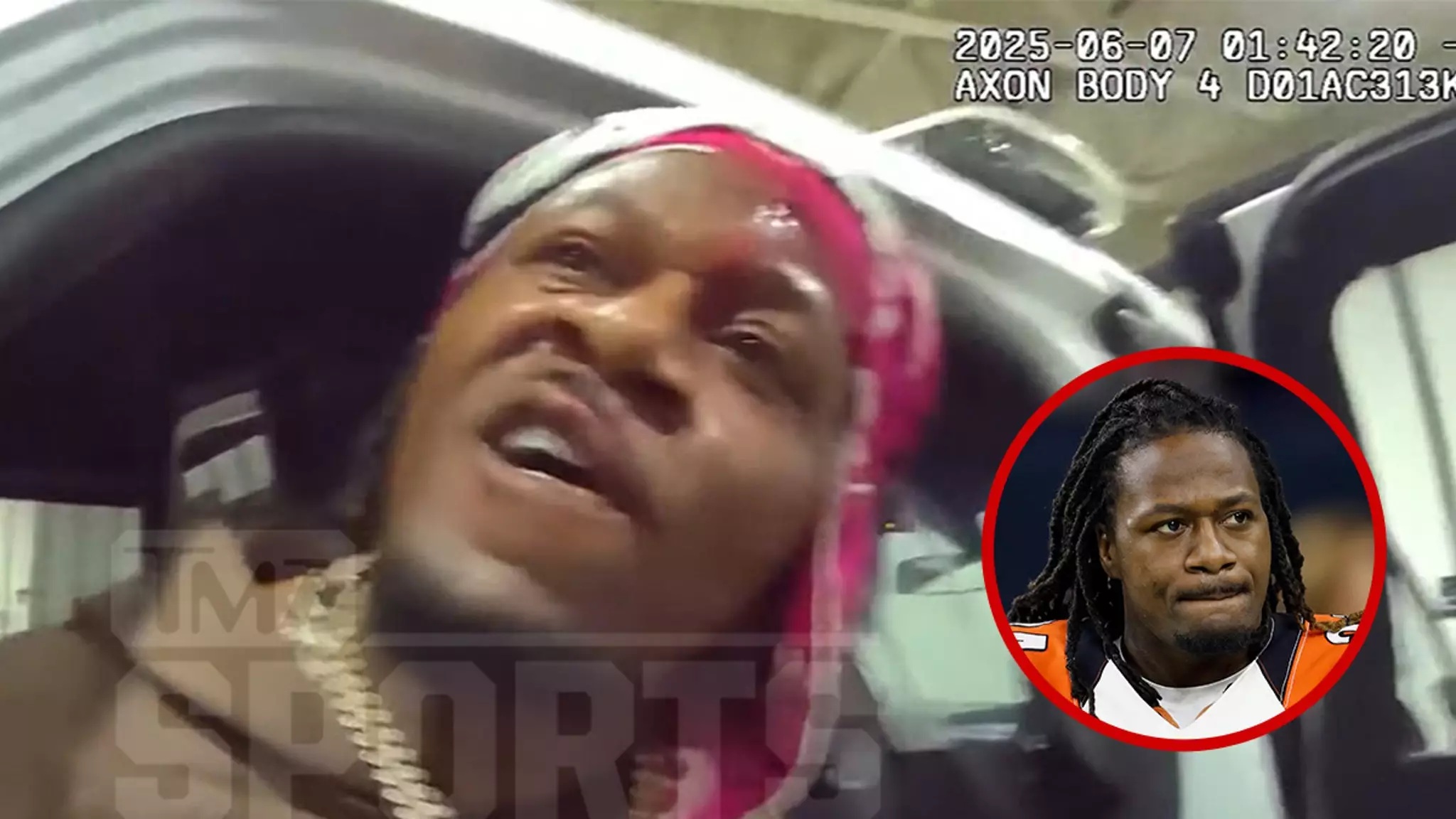The recent public intoxication arrest of former NFL player Pacman Jones is more than another celebrity scandal; it reveals the conflict that can arise when fame, intoxication, and law enforcement intersect. Captured vividly in police body camera footage, Jones’ explosive tirade against officers serves as a stark reminder of how quickly situations can escalate, especially when personal inhibitions are lowered. On June 7, in Covington, Kentucky, Jones found himself embroiled in a confrontation not just with police but with the very image he has cultivated over the years.
Initial Confrontation: The Trigger of Chaos
The incident began simply enough—a routine inquiry concerning a dispute at a nearby bar. What seemed like a minor interaction quickly spiraled into chaos as Jones exhibited a combative demeanor. The footage reveals a range of emotions, from frustration to aggression, as he attempts to walk away from the police while seeking to explain his side of the story. This speaks volumes about the complexity of dealing with public figures who might feel entitled to act without consequence. Jones’ insistence that he was wronged, even as officers informed him of their purpose, underscores a troubling narrative where responsibility is sidestepped amid a cocktail of anger and confusion.
His Defiance and the Escalation of Incidents
Once placed in handcuffs, Jones’ behavior did not improve; instead, it deteriorated into a tirade of insults. His repeated exclamations to tell the officer to “shut the f*** up” and other derogatory remarks highlight a significant disconnect between his reality and the circumstances surrounding him. This was not merely intoxication speaking; it seemed to be a defensive posturing that often characterizes individuals accustomed to a certain lifestyle. The charges he faces—assaulting a police officer, public intoxication, and disorderly conduct—serve as reminders that public outbursts have real-life implications, impacting not just the individual but also the hate-laden scrutiny of their behavior.
Physical Confrontation: An Unnecessary Escalation
Things took a turn for the worse when Jones allegedly attempted to elbow an officer in the face—one blow landing squarely enough that the officer noted a bleeding lip. This act raised the stakes of this encounter significantly. What started as a verbal confrontation escalated into potential physical assault, a grave action that could have profound legal repercussions. The irony of an athlete, who once captured the spotlight for his prowess on the field, resorting to violence against law enforcement amplifies the complexity of celebrity culture, where the pressures of fame can often lead to public meltdowns.
A Plea Not to Be Ignored
Jones’ plea of not guilty on June 11 is telling; it suggests an ongoing refusal to reconcile with the reality of his situation. Instead of facing the consequences head-on, there appears to be an attempt to sidestep responsibility. Such actions not only tarnish his legacy but echo a larger sentiment in society where individuals—especially those with fame—struggle to balance accountability with the powerful lure of celebrity entitlement. In the end, Jones’ saga is not merely about one man’s encounter with law enforcement but a microcosm of societal challenges around accountability, fame, and the delicate dance between personal freedom and social responsibility.

